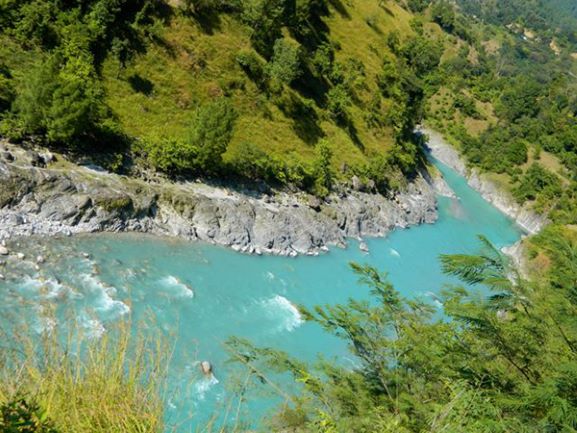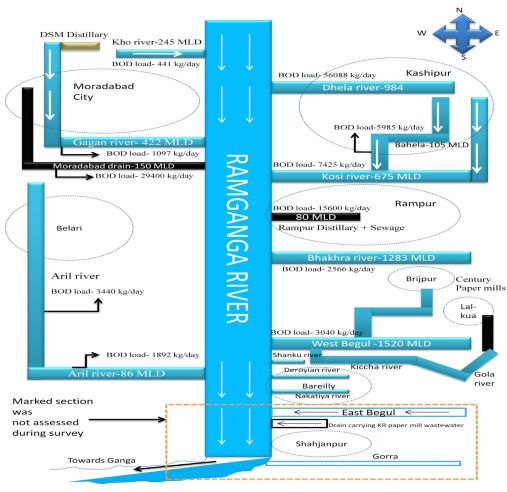

The Ramganga river remains clean in other regions like Uttarranchal
The Uttar Pradesh government while rectifying its actions informed the National Green Tribunal, black powdery residue from the burnt electronic waste has safely been removed from the banks of river Ramganga in Moradabad. Ramganga is a tributary to the river Ganga.
Earlier this year, the National Green Tribunal (NGT) had cracked its whip after the central pollution control board CPCB in its report exposed that illegal and unscientific disposal of e-waste was taking place near Ramganga riverbanks in Moradabad.
Dangerous levels of mercury was found in the waters and the CPCB report said that the pun=blic administration “was not able to handle the situation inspite of repeated orders.” The NGT then imposed a fine of Rs 10 Lakhs on the UP government after the bench was informed of a large number of people involved in the unscientific dismantling of electronic waste that has led to the leaching of chemicals due to the burning of wires, circuit boards, and electronic components, grinding and washing metal-rich residue.
The Uttar Pradesh government in its recent report said that the e-waste residue has safely been removed and stored in a scientific manner at a temporary site.


Schematic flow diagram showing point sources of river Ramganga Source: CPCB
“The work of disposal of black powder from the banks of the river is divided into two phases — first the removal and storage of the black powder in a scientific manner and the second phase comprise permanent disposal of the powder in the proposed Treatment Storage Disposal Facility (TSDF) in Amroha district. “The first phase of work has been completed and verified by an inter-departmental committee constituted by the district Magistrate of Moradabad comprising officers from Nagar Nigam, Rural Engineering Services, Public Works Department, Moradabad Development Authority and UPPCB,” the government said, adding that the TSDF would also begin functioning soon.
“Environment and public health are one of the prime concerns of the State which is working with utmost sincerity towards providing a healthy environment to its citizens,” it said, according to PTI report.
After the stage I, the NGT order states that the state has to chalk out a more permanent solution for the disposal of the waste. “Stage-I provided for temporary storage and Stage-II provided for permanent treatment and disposal in Treatment Storage Disposal Facility (TSDF). Direction was issued to take further steps and furnish an interim report.”
The Ramganga river about 570 kms long and due to the heavy discharge of industrial effluents from sugar mills, paper, textile, leather and distilleries carries a BOD (biochemical oxygen demand) load of 128 tonnes per day.
1. The mandate for blending Compressed Biogas (CBG) with natural gas has come into effect…
Andhra Pradesh is striving towards greening its energy sector with quite some speed. In a…
With an objective to bolster India’s green energy goals, a Tripartite Agreement has been signed…
The Union MNRE Minister Pralhad Joshi launched the Green Hydrogen Certification Scheme of India (GHCI)…
India’s energy conglomerate Bharat Petroleum Corporation Limited (BPCL) has commissioned a 5MW green hydrogen plant…
In a historical development, the European Space Agency (ESA) has successfully launched its pioneering ‘Biomass’…